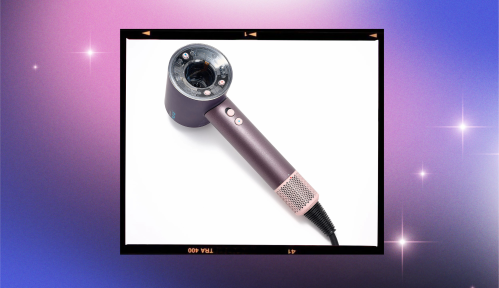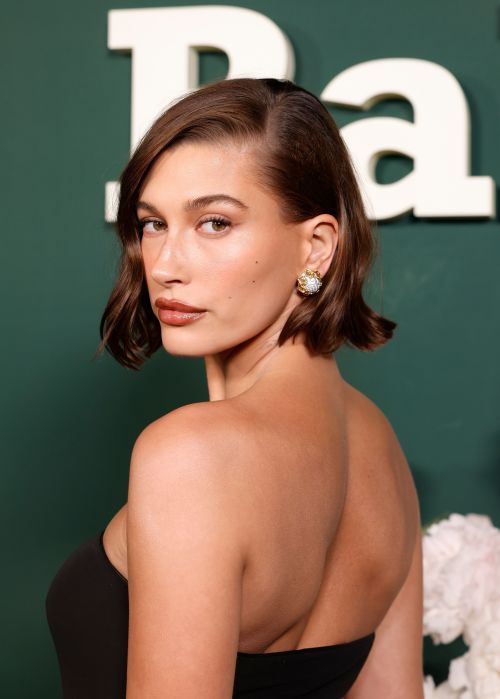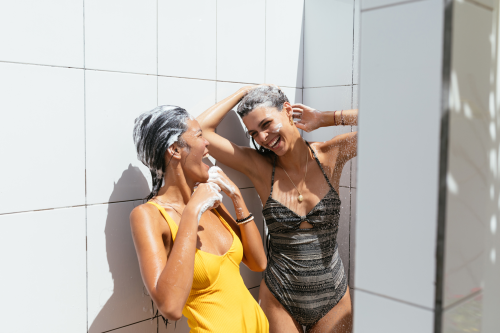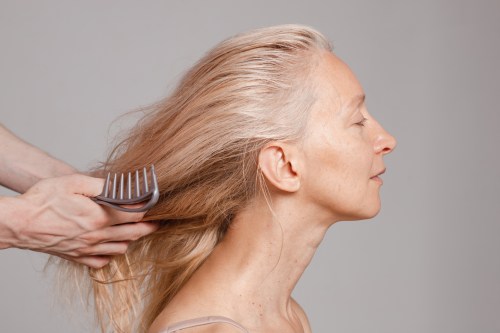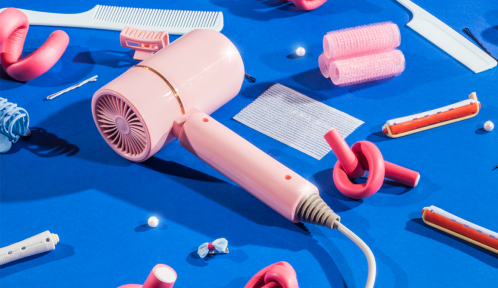Our editors independently select these products. Making a purchase through our links may earn Well+Good a commission
8 Essential Oils To Get Rid of Pesky Dandruff Once and For All
Using essential oils for dandruff is a natural and effective way to combat pesky flakes. Discover the best oils for dandruff and itchy scalp to start with.
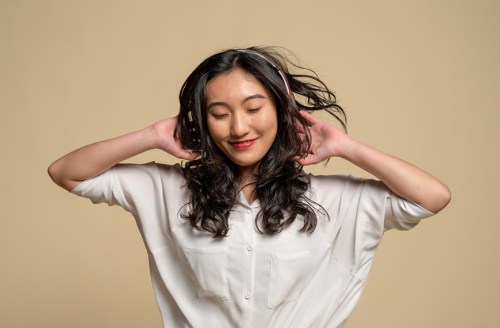
Ugh, dandruff. Once those pesky flakes start, they can be really hard to get rid of. Even worse, you have to try your best to keep your calm while dealing with the itchiness, as dandruff can be stress-related. You also can’t scratch or scrub it away—two things that could be making dandruff worse. But what if I told you using essential oils for dandruff could be a soothing and effective solution?
Experts in This Article
certified aromatherapist
essential oil expert at Spa Pechanga
director of cosmetic and clinical research in dermatology and associate professor of dermatology at Mount Sinai Hospital
founder of Love &
functional practitioner and women’s hormone expert
Ayurvedic expert and founder of GuruNanda
essential oil educator
Essential oils truly do it all. They can help quiet your mind (goodbye, anxiety), put a little pep in your step with some extra energy, and even help sharpen your focus at work. By using essential oils for dandruff, you’ll be well on your way to once again rocking your favorite black top—no flakes in sight.
Ahead, learn everything there is to know about treating dandruff with essential oils, including expert-approved options that will get the job done.
What is dandruff, exactly?
While flakes of any sort can arise, it’s actually an excess of oil that causes true dandruff. A yeast called Malassezia lives on the scalp and feeds off of the oil produced, creating yellowish flakes that can be hard to get rid of.
“Everyone has yeast on the scalp, but only some people react to the yeast because of genetics,” says Joshua Zeichner, MD, a board-certified dermatologist in New York City. “Dandruff tends to get worse during warm, humid months when there is more oil on the scalp. This creates an environment that allows yeast to grow to a higher level, which drives more inflammation.”
Contrary to popular belief, dandruff isn’t the same as dry scalp. While both can be itchy and cause flaking, dry scalp is caused by completely different factors. “True dry scalp is itching and flaking caused by skin barrier disruption from overwashing or exposure to irritants like hair dyes or other chemical treatments,” says Dr. Zeichner.
How do you treat dandruff?
Your first instinct after discovering you’re dealing with dandruff may be running to the drugstore to pick up an over-the-counter dandruff shampoo. (There are even dandruff shampoos for colored hair.) According to Dr. Zeichner, that’s a good first step.
“While you may see flaking, the best way to treat it is to get to the root of the problem by using a shampoo that lowers levels of dandruff-causing yeast,” he says. “Look for shampoos that contain ingredients like zinc pyrithione or selenium sulfide, which have antifungal effects. Selenium sulfide tends to be more effective but more potentially irritating, so be cautious if you have sensitive skin.”
While these products are meant to wash your hair, he recommends using them like you would a scalp treatment. “Apply and allow them to sit and lather so they can do their job. Lowering levels of yeast on the scalp is like cutting the fuel source for inflammation. Without the yeast, there is no driving source to react to.”
If you’re still experiencing itching or flaking after continually using the shampoo for two to four weeks, the amount of time it typically takes to tell whether it’s working or not, Dr. Zeichner says it’s time to contact your doctor. “You can touch base with your dermatologist for prescription help,” he says. You can also try essential oils for dandruff—a natural alternative that not only gets rid of those flakes and irritation but also has the potential to help you achieve a healthier scalp.
Do essential oils get rid of dandruff?
Dr. Zeichner says essential oils are used as a natural remedy for a variety of skin conditions, and dandruff is no exception. For example, using tea tree oil for your hair is considered the best oil for dandruff and itchy scalp due to how powerful it is. “Tea tree oil is commonly used to treat dandruff because it has antimicrobial and anti-inflammatory effects,” he says.
But that’s not the only essential oil for dandruff. There are many that can help resolve the issue. “There are indeed some essential oils that have aromatherapeutic actions that can reduce the symptoms, and support the scalp in getting back into a healthy balance,” says Amy Galper, aromatherapist, clean beauty business coach, and founder of the New York Institute of Aromatherapy. Caroline Schroeder, a certified aromatherapist, agrees, saying that because they have “antifungal, anti-inflammatory, antimicrobial, and analgesic properties, they may relieve itching and decrease the excessive growth of new skin cells.”
With that being said, Galper notes that the success of using essential oils for dandruff often depends on three things: how much you’re using, which carrier oil or base it’s mixed into, and how often you’re using it.
How do you mix essential oils for dandruff?
The first thing to consider when using essential oils for dandruff is the quality of said essential oil. “Choose a therapeutic grade oil,” says Rochelle Ludovisi, essential oil educator. “Many that say ‘natural’ still have fillers and synthetics added in.”
Next up, decide which carrier oil is right for you. Essential oils should always be diluted into another substance, as they can cause irritation if applied directly to the skin (or scalp, for that matter). With that said, you need to choose wisely. For instance, while using coconut oil for dry scalp might be a good idea, it’s not the best choice when you’re dealing with dandruff.
“Heavier oils like coconut oil are commonly used to moisturize the skin,” says Dr. Zeichner. “The problem is that putting a heavy oil on the scalp creates an oily environment that encourages yeast to grow, which makes dandruff worse.”
Stick to using coconut oil for dry scalp, and instead give a few other expert-approved moisturizing oils for hair a try. Starting with trying argan oil for dandruff. “It’s a great oil for hair and scalp, light, has a medium absorption rate, and is loaded with components that can help heal the skin on the scalp,” says Galper.
Using jojoba oil for dandruff is another one of her favorites. “I’d say this is the perfect oil to use because it’s fast absorbing and has this remarkable capacity to bring our skin back into balance,” she says. “It’s loaded with very unique molecules that mirror our own skin oil chemistry.”
How about using olive oil for dandruff? It can easily compete with coconut oil for dry scalp, as it’s one of the most moisturizing oils for hair. With that being said, while Galper says it’s a good choice to try, it “feels more ‘greasy’ than argan oil, so it may sit longer on the surface of the scalp and leave the hair feeling heavy.” But there’s a hack: Because she says the oil is loaded with powerful antioxidants, you can still use it in lower amounts mixed with argan oil for dandruff.
Ready to get rid of those annoying flakes, once and for all? Here, we asked a handful of experts to share their top essential oil recommendations for getting rid of dandruff.
Best essential oils for dandruff treatment
1. Tea tree oil
Does tea tree oil remove dandruff? Using tea tree oil for your hair is a smart move—it’s considered the best oil for dandruff and itchy scalp. “It is a powerful antibacterial and antifungal that both nixes and wards off any foreign invaders attacking your scalp,” says Mariza Snyder, DC, a functional practitioner and author of The Essential Oils Hormone Solution.
How to use it:Diane Brown, essential oil expert at Spa Pechanga, recommends starting with one drop of tea tree oil mixed with four ounces of a carrier oil. You can warm up the carrier oil a bit over a double broiler before you add in the tea tree oil. The heating up isn’t essential, Brown says, but it will help the oil spread more effectively. Next, massage the oils onto your scalp and cover your head with a shower cap. Leave it on for 30 minutes then shampoo as usual.
Once your scalp gets used to the essential oil, you can work your way up to a one-to-one ratio. The frequency of use depends on your hair. “You may need to apply it every few days or even once a week to avoid oil buildup,” Brown says. “With thin hair, less is more. With curly hair, you can try it every day at the beginning.” It’s worth noting that Paul Mitchell Systems has an entire tea tree range that has been formulated by cosmetic chemists to help you get the scalp benefits in your everyday routine.
Potential side effects: According to Galper, if you’re using too much tea tree oil for your hair or applying it directly to your skin without a carrier oil, it could be too drying and cause itchiness and redness.
2. Frankincense
If you’re not dealing with dandruff, but instead a dry scalp, look to frankincense—one of the most moisturizing oils for hair. “Applying frankincense regularly will regulate the scalp’s moisture,” says Brown.
How to use it: Brown recommends applying frankincense oil post-hair wash so your scalp is squeaky clean, which will help the oils absorb into your skin. Start with one drop of frankincense to four ounces of castor oil and then adjust, depending on your needs. Put on a shower cap for 15 minutes and shampoo again. Repeat as often as needed to keep the flakes under control.
Potential side effects: Galper says frankincense is a very safe oil, but if you use too much and apply it directly to your scalp without a carrier oil, you may experience slight itchiness.
3. Geranium
Another key ingredient if you’re looking to clean a dry scalp, rather than dandruff, geranium is a nice addition to your shampoo game. “Geranium will help the health of your scalp and protect your hair shaft’s equilibrium, strengthening and healing damaged hair from root to tip,” Snyder says.
That’s not all it does. Schroeder previously told Well+Good that geranium is also one of the best oils for hair growth. “To improve hair growth, a healthy scalp is key. Since geranium balances secretions around the hair follicles, it’s an effective agent for hair growth,” she says.
How to use it: To use geranium essential oil, simply add one drop to a small handful of shampoo. Then, go about your routine as normal, massaging it into your scalp and washing it out. For the best results, use it a few times a week.
Potential side effects: While geranium isn’t known to cause issues, Galper says to avoid using too much or applying it directly to your scalp. If you do, you may experience itchiness.
4. Peppermint
“Peppermint oil has anti-inflammatory and antiseptic properties,” says Ludovisi. “It soothes an itchy scalp and helps to absorb excess oils on the scalp.” You’ll find it in sophisticated formulas, like Malin+Goetz Peppermint Shampoo ($24). While peppermint hasn’t shown great evidence as an anti-fungal, these formulas tend to be clarifying, scalp-forward treatments that nix oil, which feeds the dandruff problem.
How to use it: If you want to concoct your own shampoo with peppermint oil, Galper says to add one drop to your natural, fragrance-free shampoo. Repeat whenever your scalp feels like it needs some love and refreshment.
Potential side effects: Gapler says peppermint oil is very strong, so you need to be mindful when using it. “I would never ever apply it directly to the skin,” she says. Always mix it with your shampoo or a carrier oil before applying it to your scalp.
5. Rosemary
“Rosemary oil has anti-fungal, astringent, and decongesting qualities to reduce excess oils, buildup, and flakes that can be part of the dandruff experience,” says Love White, founder of Love & Snow. “Anti-fungal qualities help to address overactive fungal activity in the scalp, which is the origin of dandruff.” You’ll find it in Sachajuan Scalp Shampoo ($32). Rosemary is also considered one of the best oils for hairfall, as well as one of the best oils for hair growth.
How to use it: White recommends mixing one part rosemary oil with three parts carrier oil in a dark bottle so it maintains its potency, like jojoba oil for dandruff. Place a few drops of the mix into your hand, rub everything together, then massage it onto your scalp. Your hair can be wet or dry. For the best results, make this a daily ritual until the dandruff goes away. Then you can use it two to three times a week for maintenance.
Potential side effects: Ensure you always combine rosemary with a carrier oil. Also, stick to the recommended amount. “If you’re using too much or applying it directly to the skin, it could be too drying and cause itchiness and redness,” says Galper.
6. Cedarwood
“Cedarwood essential oil is derived from the wood and has a smoky, woodsy essence that reminds you of camping,” says White. “Its anti-inflammatory and cleansing qualities help reduce inflammation that occurs when dealing with dandruff, and its benefits include reduced itchiness, irritation, and redness.”
How to use it: White suggests using cedarwood in the same manner as rosemary oil. Mix it with a carrier oil, rub it onto your scalp, and repeat as often as needed.
Potential side effects: Galper says cedarwood is a safe oil, but—like with all essential oils—it’s crucial to only use a small amount and to always mix it with a carrier oil. When you don’t, you put yourself at risk for itchiness.
7. Bergamot
According to Puneet Nanda, Ayurvedic expert and founder and CEO of the aromatherapy company GuruNanda, bergamot essential oil “is anti-inflammatory, hence it helps heal the scalp against dandruff.” Galper says it’s a great option too, as it has “molecules in it that are both soothing and slightly astringent.” But unlike the other options on this list, there is a safety note to be aware of before buying it.
According to Galper, bergamot essential oil is squeezed from the peel of the bergamot orange. “The whole oil contains a molecule called bergaptene that’s known to be extremely phototoxic, meaning you should never use the whole oil before spending the day outside—and certainly not on your scalp,” she says. That’s why you should always buy a bergaptene-free option, which means the bergaptene molecule has been removed through a special process. “This version of bergamot is super safe to use, so I’d always recommend you check the label and ask the supplier.”
How to use it: To get the most out of your bergamot essential oil, Galper recommends using between three to four drops per tablespoon of carrier oil and massage it into your scalp twice a day.
Potential side effects: So long as you buy the bergaptene-free version, the only issue you may notice when using bergamot essential oil is that it could be too drying. If that’s the case, Galper says to lessen the amount you’re using to one to two drops of essential oil per tablespoon of carrier oil.
8. Lavender
According to Galper, lavender oil is a great essential oil for dandruff. “It’s soothing for irritation, cleansing, and clarifying,” she says. Not only that, but lavender has also gotten praise for being one of the best oils for hair growth, acting as an effective spot treatment when mixed with a carrier oil, and—of course—helping you relax through its soothing scent.
How to use it: You can add lavender oil to your haircare routine by mixing five drops per tablespoon of your carrier oil of choice, like argan oil for dandruff. “Massage it into your scalp twice a day,” says Galper. You can also use it in your shampoo, if you so choose. For the best results, use it a few times a week.
Potential side effects: While Galper says lavender oil is very safe, as always, avoid applying it directly to your scalp without a carrier oil to avoid itching and irritation.
Frequently asked questions about using essential oils for dandruff
Which essential oil is best for dandruff?
There are a lot of options to consider, but which is the best oil for dandruff and itchy scalp? Galper loves combining a couple of the picks above. She recommends adding six drops of tea tree oil, eight drops of palmarosa oil, and five drops of geranium oil into one ounce of jojoba oil.
Using jojoba oil for dandruff is a great option, as she says it’s fast-absorbing and skin-balancing. Combined with powerful tea tree oil, hair-strengthening geranium, and anti-microbial and anti-inflammatory palmarosa oil, you have a solid mix for soothing your scalp. You can also try amla hair oil, which is rich in antioxidants and minerals.
How do I get rid of dandruff fast?
There are a couple of different ways to get rid of dandruff fast. First, the traditional route—picking up a shampoo that contains ingredients that have anti-fungal effects, like zinc pyrithione or selenium sulfide. For the best—and speediest—results, Dr. Zeichner says to use the shampoo like a scalp treatment, allowing it to sit and work its magic before rinsing it out.
If you want to stick to the essential oil route, Galper says your first step should involve restoring a healthier balance to the scalp. “I’d recommend using a rinse that can help the scalp’s microbiome recalibrate,” she says, which could be water or apple cider vinegar. “In that rinse, add a few essential oils that are known to be astringent and cleansing, like tea tree, palmarosa, geranium, Rosalina, or rosemary.”
Sign Up for Our Daily Newsletter
Get all the latest in wellness, trends, food, fitness, beauty, and more delivered right to your inbox.
Got it, you've been added to our email list.
